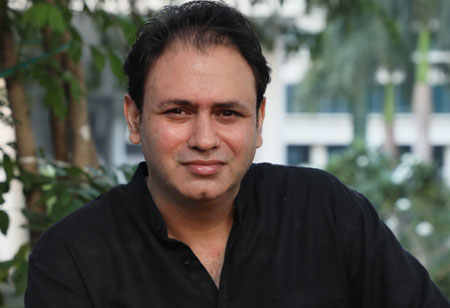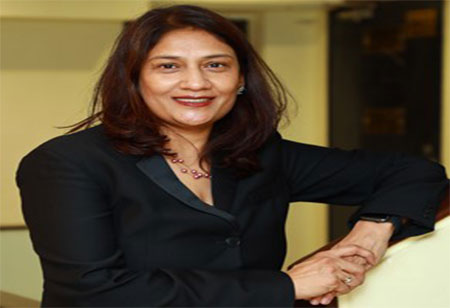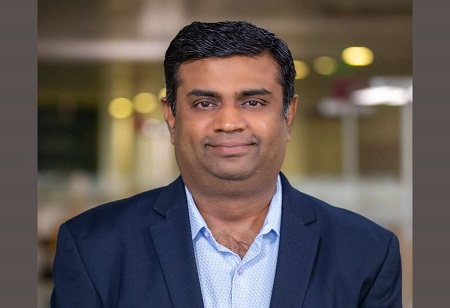The National Institute Of Engineering (NIE): A Beacon of Research & Innovation across Various Disciplines

Dr. Rohini Nagapadma
Principal
India's landscape of Research and Development (R&D) campuses is vibrant, encompassing diverse fields and pioneering initiatives. These campuses serve as epicenters of innovation, driving advancements in science, technology, and engineering. Among them, The National Institute of Engineering (NIE) in Mysuru stands out for its relentless pursuit of cutting-edge research and development across various disciplines.
At NIE, research is not just a pursuit but a passion. The institute thrives on embracing emerging areas such as Artificial Intelligence (AI) and Internet of Things (IoT) while delving deep into fields like Natural Language Processing (NLP), AI in healthcare systems, and Autonomous Systems. Here, researchers focus on developing innovative solutions to real-world problems, leveraging AI techniques for medical diagnosis, optimizing cloud computing architectures, and designing algorithms for drones and robotic systems.
Centers of Excellence at NIE play a pivotal role in fostering innovation and generating new knowledge in fields like Renewable Energy, Automobile Technology, Industrial Automation, Robotics, and Artificial Intelligence. Supported by leading organizations and government agencies, these centers promote interdisciplinary collaboration, providing researchers with cutting-edge facilities and resources to tackle complex scientific and engineering challenges.
The impact of NIE's transdisciplinary research extends beyond academia, addressing critical societal and industrial concerns. Faculty members have provided solutions ranging from clean water and alternative energy to the welfare of abandoned infants, exemplifying NIE's commitment to driving positive societal transformation.
Integrating research into undergraduate and postgraduate curricula is a cornerstone of NIE's approach. The institute offers research-oriented courses, projects, and dissertations, providing students with hands-on experience and opportunities to publish their findings. NIE's research prowess spans various domains, including Nanotechnology and Materials Science, Computer Science and Artificial Intelligence, Renewable Energy and Sustainable Technology, and Building Fire Research. Notable achievements include advancements in nano-materials, AI research, renewable energy solutions, and fire safety research, garnering recognition both nationally and internationally.
Moreover, NIE fosters a culture of entrepreneurship and innovation, supporting technology commercialization, startup incubation, and industry partnerships. Initiatives like Caspian, a startup founded by NIE students, underscore the institute's commitment to fostering innovation and driving technological advancements.
Unique Features & Research & Development Initiatives
At The National Institute of Engineering (NIE), a culture of pushing the boundaries of knowledge pervades every facet of academic life. With a strong emphasis on research-driven education, more than 50 percent of undergraduates and nearly 90 percent of postgraduates actively participate in faculty-led research initiatives. This commitment to research is underpinned by a trans-disciplinary approach, uniting diverse research talents to bridge fundamental discoveries with practical applications. This ethos permeates through various science and engineering departments and centers of excellence, fostering innovative solutions to societal and industrial challenges.
Key features of NIE's research and development efforts include robust funding opportunities facilitated by the NIE Centre for Research & Development (NIE-CRD). Here, students and faculty can access internal funding and grants to pursue ambitious research projects. The NIE-CRD also provides essential training and mentorship to faculty seeking external funding from prestigious agencies such as TEQIP, DST, SERB, IISc, and IITs.
Faculty mentorship plays a pivotal role in guiding students through the research process, from formulating research objectives to publishing findings.
Seminars and workshops provide platforms for sharing research insights, fostering interdisciplinary collaboration, and nurturing innovation. Access to state-of-the-art research facilities, laboratories, and libraries equipped with essential resources further facilitates cutting-edge research.
Publication incentives and opportunities for students and faculty are provided to encourage dissemination of research findings in academic journals and conferences. Moreover, NIE ensures access to licensed software and open-source tools necessary for conducting experiments and research.
Across departments, NIE continues to invest in upgrading laboratory equipment to support diverse research endeavors. For instance, the Computer Science & Engineering department boasts cutting-edge hardware such as IBM Power System AC 922 servers, while the Mechanical Engineering department offers facilities for material testing, automotive, automation, and robotics research. The Electrical & Electronics Engineering department provides a conducive environment and essential software/hardware resources, including MATLAB, AutoCAD, and PSPICE.
At SJU, there is a strong emphasis on fostering interdisciplinary & multidisciplinary research endeavours at all levels
In Electronics & Communication Engineering, advanced laboratories equipped with modern instrumentation and tools support research in areas like signal processing, wireless communication, and VLSI design. These facilities foster innovation and interdisciplinary collaboration, enabling researchers to address real-world challenges and drive advancements in electronics and communication technologies.
Overall, NIE's commitment to research excellence, coupled with robust infrastructure and collaborative partnerships, positions it as a leader in fostering innovation and addressing societal needs through cutting-edge research.
NIE's Collaborative Approach to Research & Industry Engagement
The National Institute of Engineering (NIE), Mysuru, stands out for its proactive engagement with industries and government agencies, translating research findings into practical solutions. Partnering with entities like KPWD, Indian Railways, KERS, and Mysuru City Corporation, NIE incorporates research data into design aspects, addressing real-world challenges. The institute's Centre for Renewable Energy & Sustainable Technologies (CREST) facilitates the adoption of renewable energy by government agencies and industries while disseminating knowledge across society. Through initiatives like CREST, students witness the tangible impact of their research at grassroots levels.
Moreover, NIE prioritizes the holistic development of students, enhancing their employability and entrepreneurial skills. Various skill development programs, workshops, and seminars focus on communication, teamwork, problem-solving, and leadership. The institute collaborates with companies for guest lectures, internships, and projects, providing students with practical exposure and networking opportunities", shares Dr. Rohini Nagapadma, Principal.
Internships play a crucial role in "NIE curriculum. The Placement Department meticulously plans internship drives, offering students hands-on experience in real-world settings. Summer internships from the sixth semester and longer-term internships from the eighth semester provide students with progressively deeper immersion in the corporate world. These experiences enable students to undertake substantial projects, collaborate with professionals, and grasp industry dynamics.
Placement assistance is another cornerstone of NIE's approach. The Training and Placement Department prepares students for placements through aptitude training, soft skill workshops, mock interviews, and career counseling sessions. Campus recruitment drives attract leading companies, facilitating internships and job opportunities for students. Notably, in the academic year 2022-23, NIE hosted 328+ companies, including renowned IT and core companies. Over the past five years, 3826 students have secured placements, including in prestigious firms like CISCO, VISA, AMAZON, GOOGLE, and MICROSOFT, reflecting NIE's commitment to nurturing industry-ready talent.
Charting the Path Ahead
Founded in 1946 by visionary engineers and supported by 13 eminent individuals from Mysuru, The National Institute of Engineering (NIE) began with just 30 students. It has since evolved into a modern educational hub for 5,000 students, offering engineering programs from traditional fields like Mechanical and Civil Engineering to emerging areas such as Artificial Intelligence. Recognizing the need for continuous improvement, NIE has enhanced its academic programs and laboratory infrastructure to align with industry standards.
To support its large student body and diverse interests, NIE has established research labs and centers of excellence. The institute has signed cooperative agreements with leading companies and international institutions, fostering a robust exchange program with overseas universities. This collaboration focuses on joint innovative student projects and research initiatives.
Supported by organizations such as TCS, Nokia, Microsoft, and government entities like ISRO and MHRD, NIE promotes interdisciplinary collaboration and provides cutting-edge resources. The institute aims to expand its student body to 10,000 by 2030, positioning itself as a premier hub for scientific and technical education. With a commitment to postgraduate education and research, NIE strives to innovate and address industrial and national needs, maintaining its upward trajectory in engineering excellence.
🍪 Do you like Cookies?
We use cookies to ensure you get the best experience on our website. Read more...





